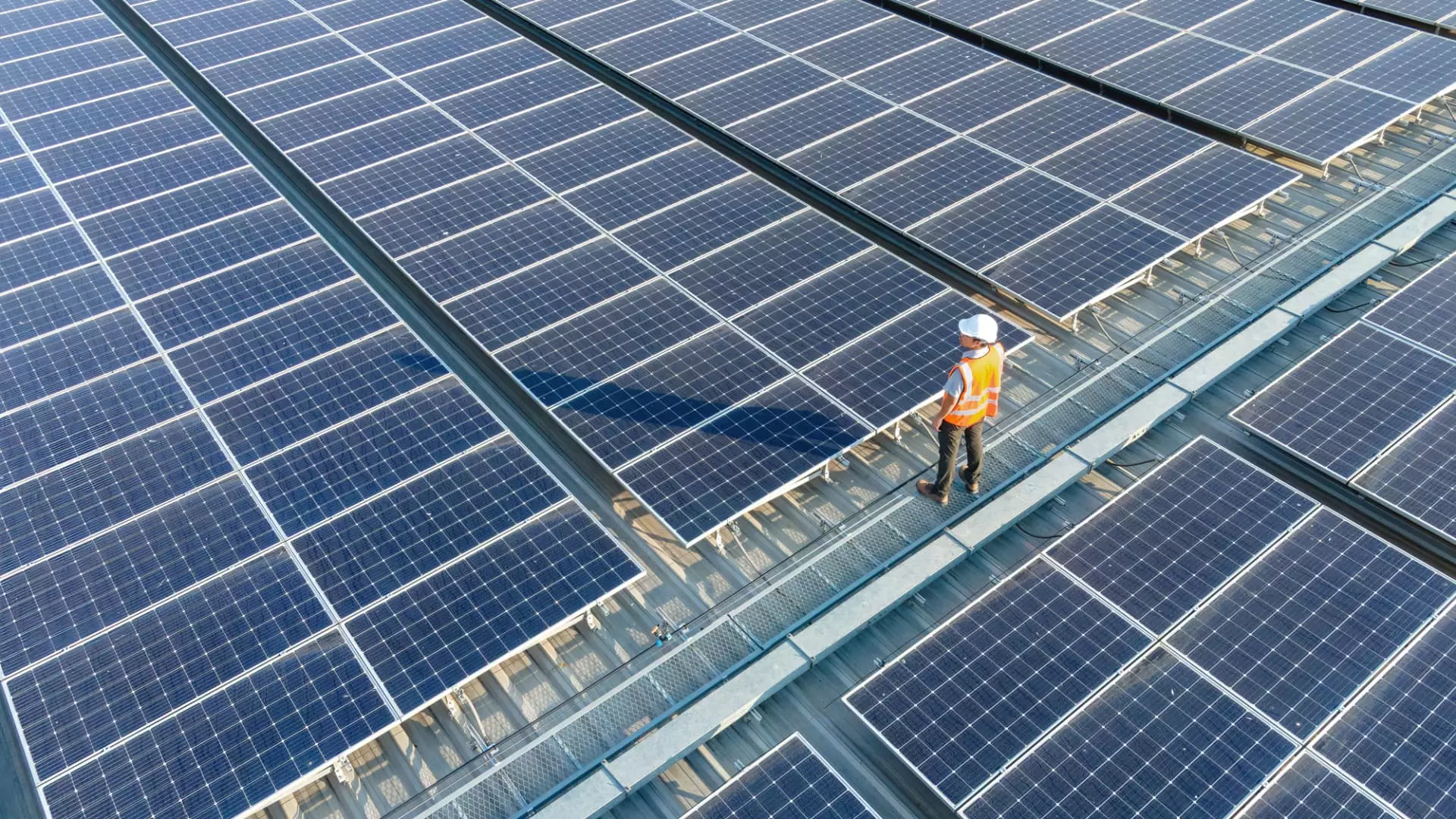In today’s rapidly changing financial landscape, the ultra-wealthy are increasingly gravitating toward alternative investments as a means of diversifying their portfolios. Family offices, which manage the assets of high-net-worth individuals, have recognized the potential of sectors like real estate, venture capital, and private credit. According to a recent survey by BlackRock, these entities have raised their allocation to alternative assets, averaging over 42% in recent months—a notable increase reflecting a shift in investment philosophy. But while this trend may appear promising, one must dig a little deeper to understand the underlying implications and potential pitfalls of such strategies.
One of the most striking findings from the survey is the substantial increase in interest towards private credit, particularly among single-family offices. An astounding 32% of these offices are poised to enhance their commitments in this asset class within the year. While that may seem like a positive outlook, the exuberance raises eyebrows. The enthusiasm could easily lead to a feeding frenzy that overlooks the looming specter of economic downturns and the questionable viability of many companies seeking credit in an inflated market.
Infrastructure: A Double-Edged Sword
Infrastructure investments have also gained traction, with 30% of family offices signaling an intent to channel more funds into this sector. The appeal of these investments, touted by BlackRock’s Armando Senra as a lower-risk counterpart to private equity, is enticing. However, one must consider the complex nature of infrastructure projects. They often involve lengthy approval processes and inherent political risks. The notion that infrastructure offers a robust financial shelter may overlook the fluctuating policies affecting such investments, especially in our current environment where governmental support can be unpredictable.
Moreover, the phrase “infrastructure needs” is thrown around casually, often with the accompanying excitement of burgeoning sectors like artificial intelligence. But let’s pause for a moment; while the demand for infrastructure might suggest security, the projects themselves often come riddled with uncertainties. Are we investing in infrastructure that aligns with future needs, or are we merely responding to the latest financial fad? The sustainability of such investments is still open to question, leading to a confrontational juxtaposition between current optimism and potential future frustration.
The Myth of Private Credit Safety
Private credit is perhaps one of the most alluring yet dangerously ambiguous areas on the investment table. Although over half of the survey’s respondents expressed a favorable outlook toward this asset class, it also raised concerns regarding the integrity of borrowers. The statistic that 21% of family offices hold pessimistic views should be cause for alarm. The influx of capital can cloud judgment and diminish due diligence—leading to poorly vetted investments that increase the likelihood of exotic defaults during economic downturns.
Senra’s caution is warranted. As private credit gains mainstream acceptance, separating the truly seasoned managers from those drawn in by the hype is essential for maintaining capital integrity. The seductive nature of high returns must be met with rigorous scrutiny, lest we find ourselves ensnared in a cycle of wishful thinking.
The Illusion of Diversification
In the rush to diversify portfolios, family offices are approaching alternatives with a sense of urgency that can be counterproductive. While the need to spread risk across various asset types is a reality for wealthy investors, there is a fine line between diversification and overexposure. Investment decisions are sometimes made without due diligence simply because something is trending. This mentality stifles thoughtful allocation and can lead to severe repercussions when the market corrects.
Therefore, while BlackRock’s findings on the growing interest in alternatives signal a shift in investment strategy for family offices, this trend necessitates a comprehensive understanding of the associated risks. Simply plowing money into an asset class because others are doing it can come with high stakes—especially in the volatile economic climate we are navigating today.
The focus on perceived security in private credit and infrastructure is an appealing façade that may hide underlying vulnerabilities. Before we make these investment choices, a deeper evaluation of potential pitfalls is essential, not just for self-preservation but also to safeguard the financial ecosystem that the ultra-wealthy inhabit. The future of investing calls for a more conscientious and critical approach rather than a drive purely fueled by trends and hyperbole.

